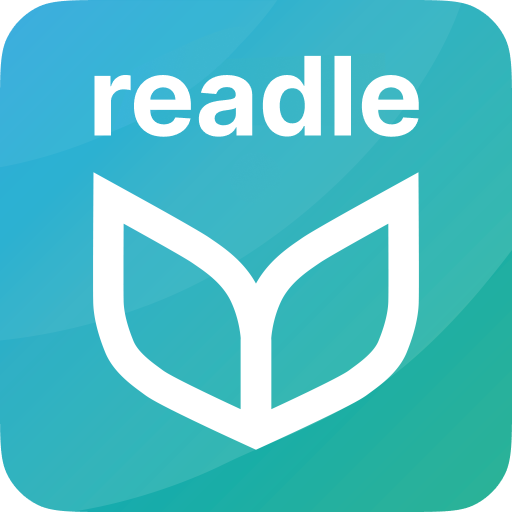
If you want to learn German, getting familiar with some basic vocabulary is essential – especially when it comes to some common words or expressions.
As you already know, there are different parts of speech in every language – and there are some basic nouns, adjectives, and verbs in them. Today, let’s focus on some common verbs in German and give your language learning process a head start. And trust us: for you, learning those several important words shouldn’t be a problem.
The thing is, the basic German verbs – and even most German verbs – are often similar to their English equivalents. Because of that, it’s actually easier for English speakers to learn important verbs when starting their journey with the German language. However, be aware that sometimes, the verbs might look and sound very similar but mean something completely different.
Learning German Verbs: the Basics
The dictionary form of all German verbs is called the “infinitive” – exactly like the English one (for example, “to be” “to go,” “to say,” etc.) German infinitives usually end in –en and sometimes just -n, as in gehen (to go), sagen (to say), können (to be able/can), sein (to be), or klingeln (to ring).
Just like you change the verbs in English by adding an -s to form for the third person singular, “he, she, it,” German verb endings change as well (this is called “conjugation“) depending on who is doing the action and the tense (I live, he lives – ich lebe, er lebt or I lived – ich lebte).
Some German verbs (including a couple on our list below) are “strong verbs,” which means that in the past tense, a vowel in the stem of the verb (the part that’s left when you take off the conjugation-endings) changes: I give > I gave; ich gebe > ich gab (“geben” = infinitive; “geb-” = stem).
How To Learn The Most Important German Verbs

Below, you will find a list of the most common German verbs. Remember: you don’t need to learn them in a set order – we just sorted them by usage. Instead, you can mix them up, choose to learn the ones that seem easier for you to remember, or create some flashcards, preferably with images and/or sample sentences and not just the translation.
Our list only contains the infinitives, but you need to learn the right endings, too. The German verb endings are generally regular, but even strong verbs and a number of other irregularities also follow patterns that can be quickly explained and that you can master. German efficiency and love for order come in handy when it comes to grammar rules!
Context and visualization can help you remember the verbs. However, when learning, always make sure that you’ve got the ending right and that you’re using the verb in a natural-sounding way. Pay attention when you read, listen and speak, so that you can note the sentences with the examples of the verbs in context.
Most importantly: repetition! Keep on repeating learned verbs over and over again so as to make sure they come naturally when you speak German.
Basic Verb Tenses
If you haven’t learned the different tenses yet, here are the most important things to know. If you want to learn more about them, check out our post about German verb tenses.
Present tense
1. Regular Verbs: Infinitive without –en + endings:
Example: to play, spielen without -en = spiel
Now we add the endings for I, you, he/she/it, we, you (pl) and they (-e, -st, -t, -en, -t, -en):
ich spiele, du spielst, er/sie/es spielt, wir spielen, ihr spielt, sie spielen
So the conjugated regular verb for “we” and “they” is the same as the infinitive.
2. Irregular Verbs include to be/sein, to have/haben, to become+will/werden, to know/wissen, modal verbs, and verbs where the stem is changing.
Future Tense
werden (will) + infinitive;
So “werden” is conjugated according to the pronoun/person, followed by the infinitive (always in the end of the sentence):
ich werde … spielen, du wirst … spielen, er wird … spielen
wir werden … spielen, ihr werdet … spielen, sie werden … spielen
Examples:
I will play soccer on Sunday.
Am Sonntag werde ich Fußball spielen.
You will learn German very fast.
Du wirst ganz schnell Deutsch lernen.
Past Tense
Like in English, you say “I have been,” in German, you should use “haben” + participle. Some verbs use “sein” (to be) instead of “haben.” And just like with the future tense, where the verb is at the end of the sentence, here the participle is at the end of the sentence.
ich habe … gespielt, du hast … gespielt, er hat … gespielt
wir haben … gespielt, ihr habt … gespielt, sie haben … gespielt
I have played soccer last Sunday.
Ich habe letzten Sonntag Fußball gespielt.
I have learned German very fast.
Ich habe ganz schnell Deutsch gelernt.
I walked (literally: I am walked) to school yesterday.
Gestern bin ich zur Schule gelaufen.
Here They Are: 100 Basic And Most Common German Verbs
1. sein to be
2. haben to have
3. werden to become and will
4. können can, be able to
5. müssen must, to have to
6. sagen to say
7. machen to do, make
8. geben to give
9. kommen to come
10. sollen should, ought to
11. wollen to want
12. gehen to go
13. wissen to know
14. sehen to see
15. lassen to let, allow, have done
16. stehen to stand
17. finden to find
18. bleiben to stay, remain
19. liegen to lie, be lying, to be located in
20. heißen to be called
21. denken to think
22. nehmen to take
23. tun to do
24. dürfen may, to be allowed (nicht dürfen = must not)
25. glauben to believe
26. halten to stop, hold
27. nennen to name, to call (a name)
28. mögen to like
29. zeigen to show, to point
30. führen to lead, to guide
31. sprechen to speak, to talk
32. bringen to bring, take
33. leben to live
34. fahren to drive, ride, go
35. meinen to think, have an opinion
36. fragen to ask
37. kennen to know
38. gelten to be valid
39. stellen to place, set, put
40. spielen to play
41. arbeiten to work
42. brauchen to need
43. folgen to follow
44. lernen to learn
45. bestehen to exist, insist, pass (an exam)
46. verstehen to understand
47. setzen to set, put, place, sit down (the motion of sitting down)
48. bekommen to get, receive
49. beginnen to begin
50. erzählen to narrate, tell
51. versuchen to try, attempt
52. schreiben to write
53. laufen, to run, walk
54. erklären to explain
55. entsprechen to correspond, to equal
56. sitzen to sit (to be seated, not moving to be seated)
57. ziehen to pull, move
58. scheinen to shine, seem, appear
59. fallen to fall
60. gehören to belong
61. entstehen to originate, develop
62. erhalten to receive, to get
63. treffen to meet
64. suchen to search, look for
65. legen to lay, put
66. vorstellen to introduce, imagine
67. handeln to deal, trade, to be about (the story is about…)
68. erreichen to achieve, reach
69. tragen to carry, wear
70. schaffen to manage, create
71. lesen to read
72. verlieren to lose
73. darstellen to depict, portray
74. erkennen to recognize, admit
75. entwickeln to develop
76. reden to talk, to speak
77. aussehen to appear, look (a certain way), look like
78. erscheinen to appear
79. bilden to form, educate
80. anfangen to begin
81. erwarten to expect
82. wohnen to live in/at (location)
83. betreffen to affect, concern
84. warten to wait
85. vergehen to elapse; to decay; to go by
86. helfen to help
87. gewinnen to win
88. schließen to close
89. fühlen to feel
90. bieten to offer; to bid
91. interessieren to interest
92. erinnern to remember/remind
93. ergeben to result in; to surrender
94. anbieten to offer, make an offer
95. studieren to study (at university)
96. verbinden to connect, link
97. ansehen to look at, watch
98. fehlen to lack, be missing, be absent
99. bedeuten to mean
100. vergleichen to compare
Just One More Thing To Do: Practice!
Now you are familiar with the 100 most common German verbs. However, you shouldn’t stop there. Practice more and learn to use those verbs on a daily basis. For example, you can do different exercises with a certain verb, or try to create a complete sentence with it, or speak in German more.
Another way to practice those words is by using Readle – learn German. There, you will read and listen to interesting stories and news from all over the world translated into German by native speakers, learn grammar, and do simple yet fun quizzes. Trust hundreds of users whose German skills got better and better with us and start using German verbs naturally, without thinking of the correct form. It’s never been easier!
